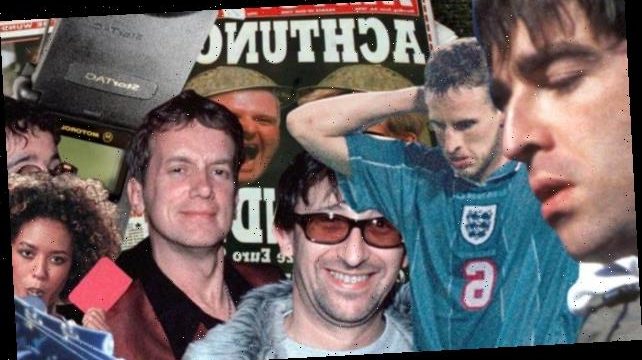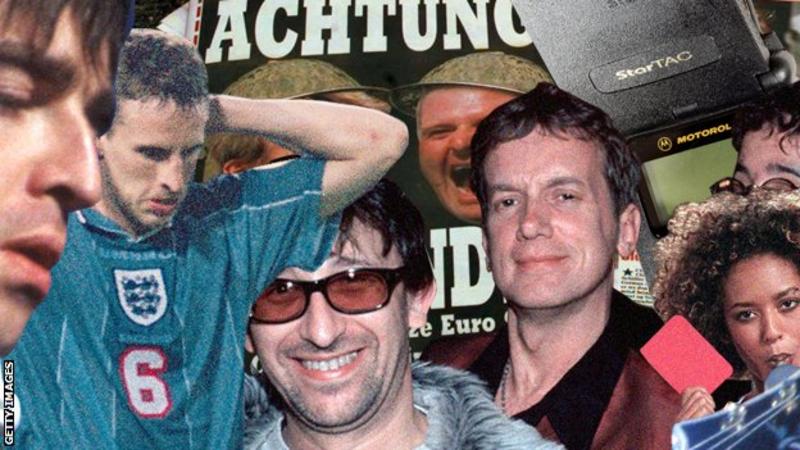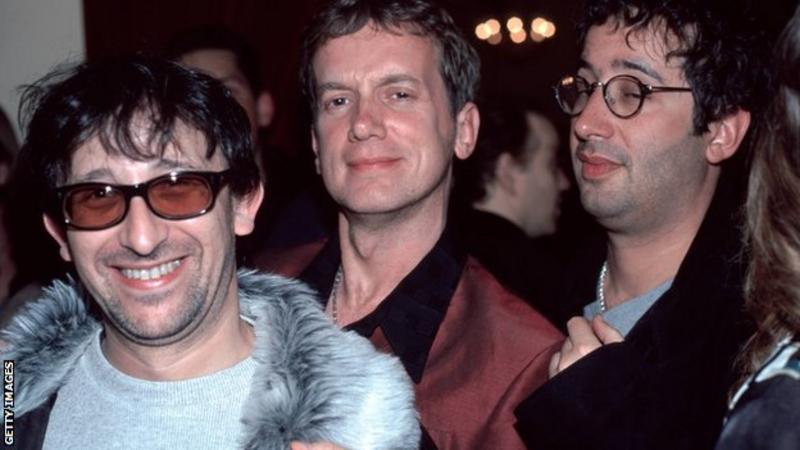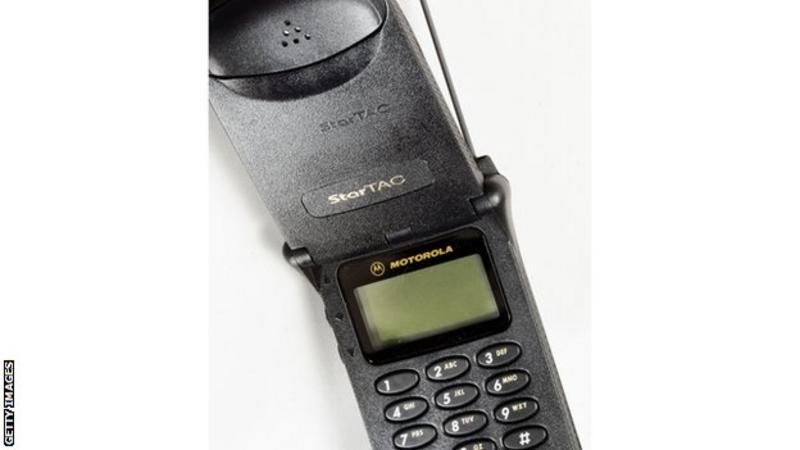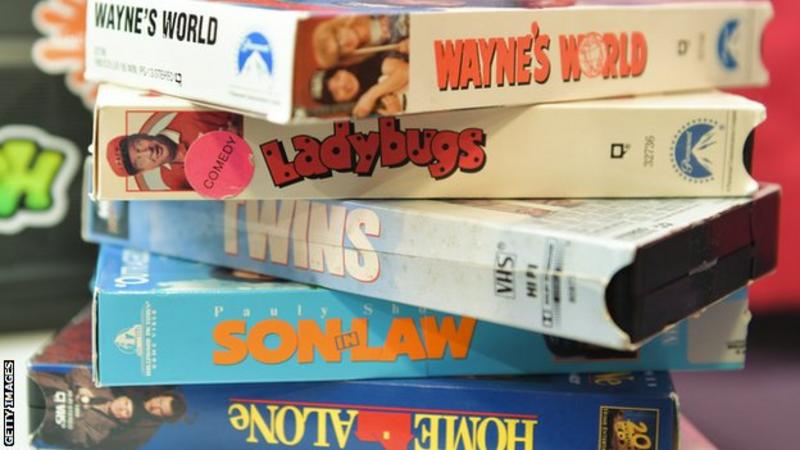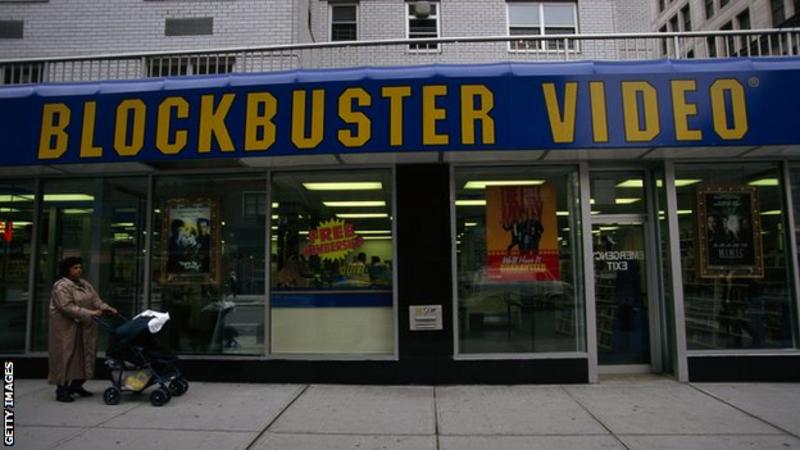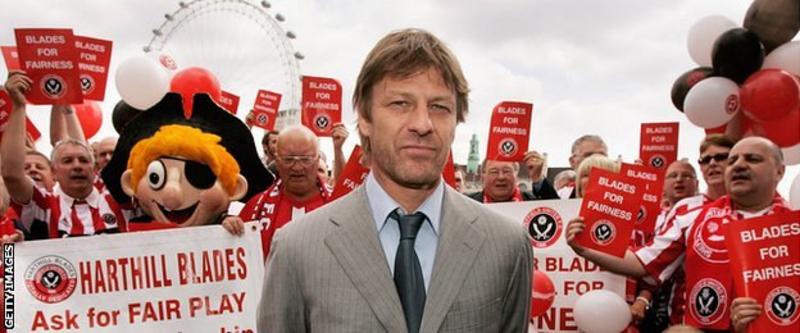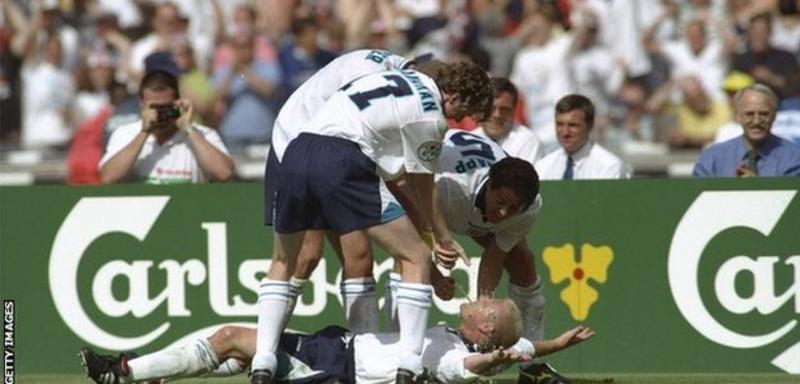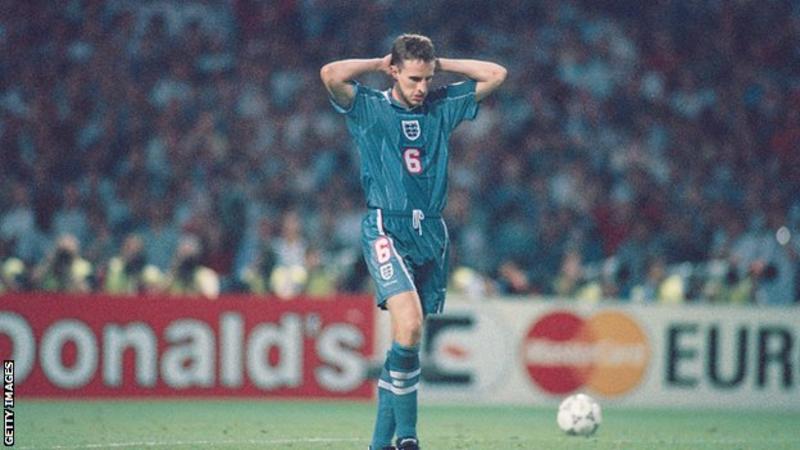This summer, we’re going back in time to Euro 96.
It was 24 years ago – before some of you were even born. So how different was life in the UK back then?
In a sense, it’s a rigged question, considering how much life has turned upside down in the last three months alone, never mind the last 24 years.
For a start, there was actually a European Football Championship tournament to be played at all. And, even better, England were hosting, with Scotland along for the ride too.
We’ll be watching it on TV this summer, as we wait to hear more about when it may be safe for domestic and international football to resume.
There were many other differences too, though. We’ve gone through some of the major transformations below.
- No elite sport in England before 1 June
The ‘chart football song’ was still a thing
When was the last time we had a good tournament song?
1996 was a moment in British history where guitar music, football, terrace fashion and the glorification of lager seemed to meet at a cultural interface. As a shorthand, you might call it “Cool Britannia” and, basically, what it did was offer a pretext for men and women all over the country – from Aberdeen to Stevenage – to wear football shirts as fashion items and swagger about like Liam Gallagher.
Out of that heady mix was born the England team’s official tournament song Three Lions, written and performed by Lightning Seeds frontman Ian Broudie together with comedians David Baddiel and Frank Skinner (for the unfamiliar, think of them as a pre-digital age Poet and Vuj).
‘Cause I remember
Three Lions on a shirt
Jules Rimet still gleaming
Thirty years of hurt
Never stopped me dreaming
Those words contain the anguished, battle-weary, optimistic hopes of a nation.
Ultimately, we know how that story ended. Football didn’t come home. Or did it? Was it worth it for the craic? More on that later.
Hardly anyone had a mobile and, if they did, it looked like this
According to Statista, mobile phone ownership in the UK, as of 2017-18 was 95%. In the same study, the proportion for 1996 was 16%. Fewer people had mobile phones than didn’t. Take a minute. Lie down if you need to.
For those breathing the rarefied air of cellular phone ownership, the choice du jour was not an Apple, or a Samsung, but one of these – a Motorola StarTAC, the first ever flip phone. Flip phones were great because, every time you got a call, you could whip it open with a little flourish that really helped underline just how important you were.
According to the Guardian, this snazzy piece of kit cost only $1,000 (roughly £645 during Euro 96, what a bargain) – and 60 million of them were sold.
Oh, it could send and receive text messages too.
Google didn’t exist
This was what a few other popular websites looked like in 1996.
Meanwhile, Google didn’t even exist. The search engine was invented two years later, in September 1998, by two Stanford University students, Sergey Brin and Larry Page.
So where did people go for their information in 1996? Were they all just very, very ignorant? No! Because as well as newspapers and books, people in the mid-90s had access to a search engine called InfoSeek, which was one of the most popular websites in 1996.
People watched movies on these things
Back in 1996, films, much like music, were bought as actual, physical objects, which you could hold.
The DVD was invented in 1995, later going on to knock the cumbersome VHS cassette off its perch as the most common way to play films.
Also, before streaming, if you wanted to watch a film without owning it, you would probably go to a rental store like one of these.
According to IMDB, the best movie releases of 1996 included Toy Story, Fargo, Trainspotting, Casino and Heat.
One of the Brit-flick releases of 1996 was When Saturday Comes – which was probably as good a barometer of the mood of the nation at that point in history as any other.
In it, Sean Bean plays Jimmy – a talented footballer who may be able to make it for his beloved Sheffield United, if only he can overcome his own heavy drinking.
The number of stories about off-field drinking incidents involving the England squad before Euro 96 gives some idea as to the cultural influences that helped make that movie.
In the mid-90s, the influx of money into the Premier League also catalysed the rise of the playboy footballer, and it felt like you were just as likely to see an England star pictured stumbling out of a nightclub with a glamour model from the pages of Loaded magazine, as you were to see them on a training field.
England went out on penalties again
Though Scotland failed to make it our of the group stage, it soon became apparent that England, playing all their games at Wembley, might actually do quite well after a slow start to the tournament.
They even won a penalty shootout against Spain in the quarter-finals to set up a semi-final against old foe Germany, and people started to believe that football really would come home. Until penalties dawned.
- England bad at penalties? Think again – say Germans
And two decades before Gareth Southgate became England’s great redeemer, he was England’s latest fall guy. The Aston Villa defender was the latest player to miss or have a penalty saved, resulting in England being eliminated from another tournament.
What happened next was that he became mostly know for that incident and this Pizza Hut advert.
We’re thankful he got a chance to prove himself again.
Source: Read Full Article
